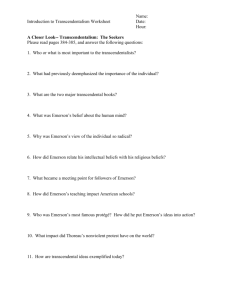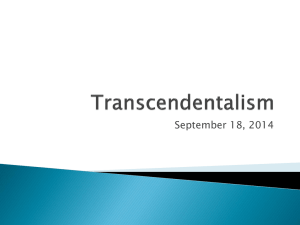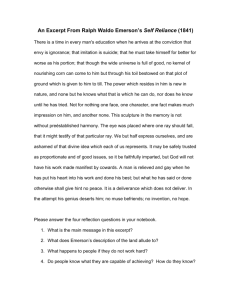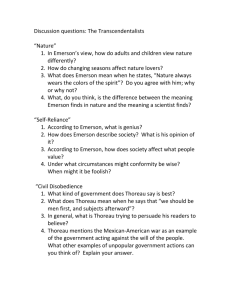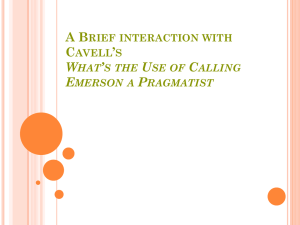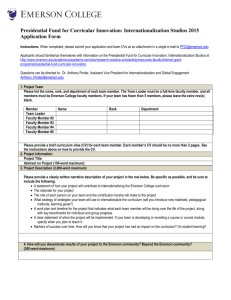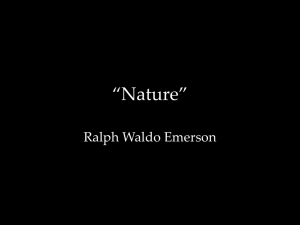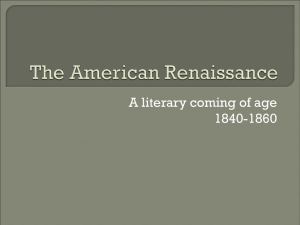Emerson Vocabulary C..
advertisement
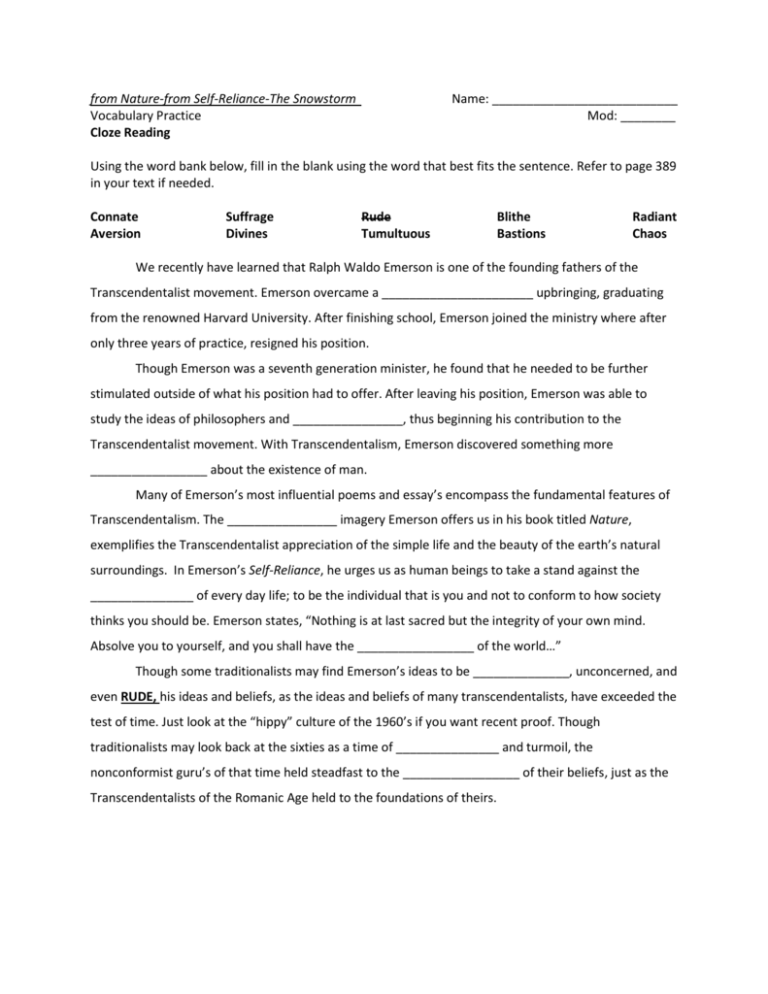
from Nature-from Self-Reliance-The Snowstorm Vocabulary Practice Cloze Reading Name: ___________________________ Mod: ________ Using the word bank below, fill in the blank using the word that best fits the sentence. Refer to page 389 in your text if needed. Connate Aversion Suffrage Divines Rude Tumultuous Blithe Bastions Radiant Chaos We recently have learned that Ralph Waldo Emerson is one of the founding fathers of the Transcendentalist movement. Emerson overcame a ______________________ upbringing, graduating from the renowned Harvard University. After finishing school, Emerson joined the ministry where after only three years of practice, resigned his position. Though Emerson was a seventh generation minister, he found that he needed to be further stimulated outside of what his position had to offer. After leaving his position, Emerson was able to study the ideas of philosophers and ________________, thus beginning his contribution to the Transcendentalist movement. With Transcendentalism, Emerson discovered something more _________________ about the existence of man. Many of Emerson’s most influential poems and essay’s encompass the fundamental features of Transcendentalism. The ________________ imagery Emerson offers us in his book titled Nature, exemplifies the Transcendentalist appreciation of the simple life and the beauty of the earth’s natural surroundings. In Emerson’s Self-Reliance, he urges us as human beings to take a stand against the _______________ of every day life; to be the individual that is you and not to conform to how society thinks you should be. Emerson states, “Nothing is at last sacred but the integrity of your own mind. Absolve you to yourself, and you shall have the _________________ of the world…” Though some traditionalists may find Emerson’s ideas to be ______________, unconcerned, and even RUDE, his ideas and beliefs, as the ideas and beliefs of many transcendentalists, have exceeded the test of time. Just look at the “hippy” culture of the 1960’s if you want recent proof. Though traditionalists may look back at the sixties as a time of _______________ and turmoil, the nonconformist guru’s of that time held steadfast to the _________________ of their beliefs, just as the Transcendentalists of the Romanic Age held to the foundations of theirs.
